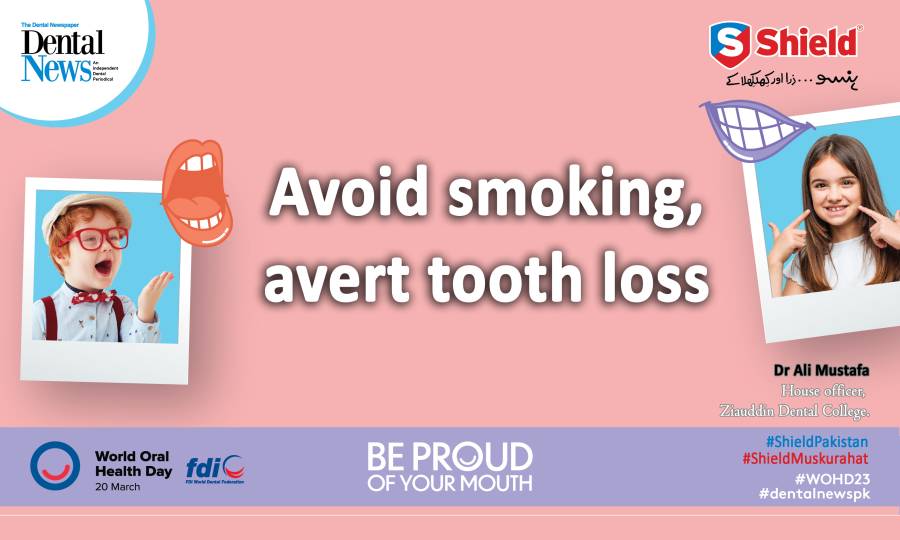
While lighting up a cigarette, most of the smokers are oblivious to the harm their habit causes to the general health and appearance of their teeth, and various serious ailments that may ultimately put their life at risk.
When you clean and brush your teeth every day, you eliminate the natural biofilm that the bacteria in your mouth creates on the surface of your teeth. If the biofilm is not removed, it can harden into plaque that gets stuck between teeth and it becomes challenging to get rid of it.
Smokers often have teeth that seem yellow, and in acute cases brown, because both the film and plaque are far more likely to take up stains than your natural teeth surface does. The same as your skin, your teeth have pores which are easily penetrated by nicotine and tar in tobacco, resulting in a yellow or brown tint.
Your gums protect the area around your teeth where the roots bury themselves in the bone. The bone around your teeth may start to recede if your gums swell up or start to regress, ultimately leading to tooth loss.
Nicotine in cigarettes constricts blood vessels and causes poor blood circulation, due to which smokers' gums may not bleed or become irritated, which are signs of gum disease. If the disease is discovered too late, it can become impossible to salvage your teeth.
It has been estimated that smokers have between five and 20 times higher risk of developing periodontal disease, that renders any treatment of gum ailment compromised among smokers.
Tobacco can induce halitosis no matter whether it is chewed or smoked.
The concentration of sulphur that causes bad breath may also make this impact stronger if you choose to smoke heavier tobacco.
Smokers have lower levels of serum and salivary immunoglobulin, which has an impact on the mouth’s capacity to fight off infections and repair oral wounds. Additionally, they have less oxygen in their blood, which results in less oxygen getting to the tissues, which hinders the recovery process after oral surgery.
Another condition that is four times more common among smokers than non-smokers, is dry sockets—a condition where the blood clot that forms after tooth extractions is lost.
Cavities are also much more likely to occur in smokers because they are more likely to have higher than average amounts of the bacteria, Streptococcus Mutans, that causes cavities. This is caused by factors such as decreased saliva flow, increased tartar and plaque, and higher pH levels in the mouth. Smokers often use mint candies to prevent this effect, but as these candies contain a lot of sugar and citric acid, which can also cause tooth erosion and caries.
Cigarettes and other tobacco products contain at least 70 hazardous compounds that may cause oral cancer – an abnormal growth of tissues in the mouth converting into cancer -- that can spread to the nose, neck area etc.
Smoke inhalation causes excessive levels of carbon monoxide, hydrogen cyanide and a number of other recognised carcinogens to be absorbed into wet oral tissues, which may cause oral cancer.
To avoid risk of such life-threatening diseases, the best option is to simply give up smoking. Look at the next best alternative if you have repeatedly tried to stop smoking, but failed. A commitment to reducing the quantity of daily smoking will dramatically improve your oral health and help save your teeth.
Scheduling routine dental visits is also crucial to teeth protection. Dentists can assist you in finding methods to combat gum disease, which results in tooth loss. Regardless of the present condition ofyour teeth, many of the problems related to smoking and using tobacco can be fixed or stopped. In many cases, discoloration can be fixed by cleaning, polishing and whitening procedures. Decay can be treated with fillings, root-canals and even crowns, and periodontal disease is often reversible via deep cleaning, sometimes referred to as scaling and root planing.
Quitting smoking may be difficult to do, but once you get there, you’ll be glad you did.


